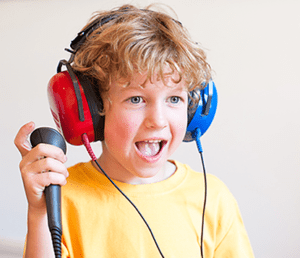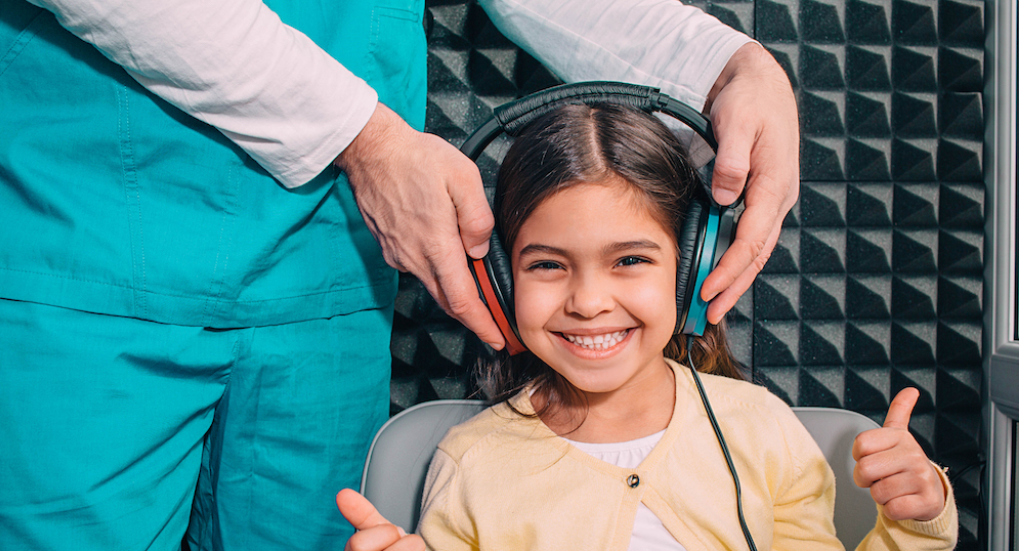The Importance of Hearing Screenings
While many parents involved in speech therapy are concerned about speech sound production and the level of language their child is able to produce, it is equally important for the speech therapists to consider a child’s hearing and the way they receive auditory input.
All Sounds Are Not Created Equal
If your child has been recommended for speech therapy, they may have also been recommended to receive a hearing screening before beginning therapy. The reason? All sounds are not created equal! Speech sounds are delivered to our ears at a wide variety of frequencies and intensities. When sounds are delivered to the ear, our brains quickly decipher this information to give us a better idea of the sound’s location, volume, and most importantly, how we should react and respond to it. Similarly, children build familiarity and exposure to speech sounds throughout daily living tasks and begin to construct sounds based off of this information. But, think about it: If your child can’t hear a specific sound, how will he or she be able to produce it?

Parents may be familiar with newborn hearing screenings, but these results are often shared with a slew of other numbers and data points, and at that point, exhausted parents are just happy to have one more thing checked off the list before discharge from the hospital. Many children do not receive another hearing screening until they reach school age. During a screening, hearing is tested at a variety of volumes, frequencies, and intensities, as the audiologists watch for responses from the child to occur (I.e., eyes widening, vocalizing, turning head to localize sounds, etc.). However, between infancy and school-age, there are a lot of things that can occur which would impact a child’s ability to hear environmental noises, as well as speech sounds alike!
Things That Can Effect a Child’s Ability to Hear
Most commonly, frequent ear infections can lead to fluid build-up in the inner ear, which can cause total blockage of some sound frequencies, but also can lead to sound becoming “muffled”. Prolonged use of certain medications and steroids can also lead to hearing loss over time, as well as certain infections, such as meningitis. Often, this happens gradually and can be less apparent. Last, exposure to loud environmental sounds at an early age or frequently throughout childhood development puts a child at risk for sustained hearing loss.
Being able to hear the sounds around us improves our speech, language, cognition, and social language use. When we can clearly hear the messages surrounding us, we can react and respond to all environmental stimulus quickly and appropriately. If you have questions regarding speech therapy and feel ready to begin this journey with us, let our specialists in Early Intervention get your child off on the right path! Call us today for an assessment at 773-687-9241!



